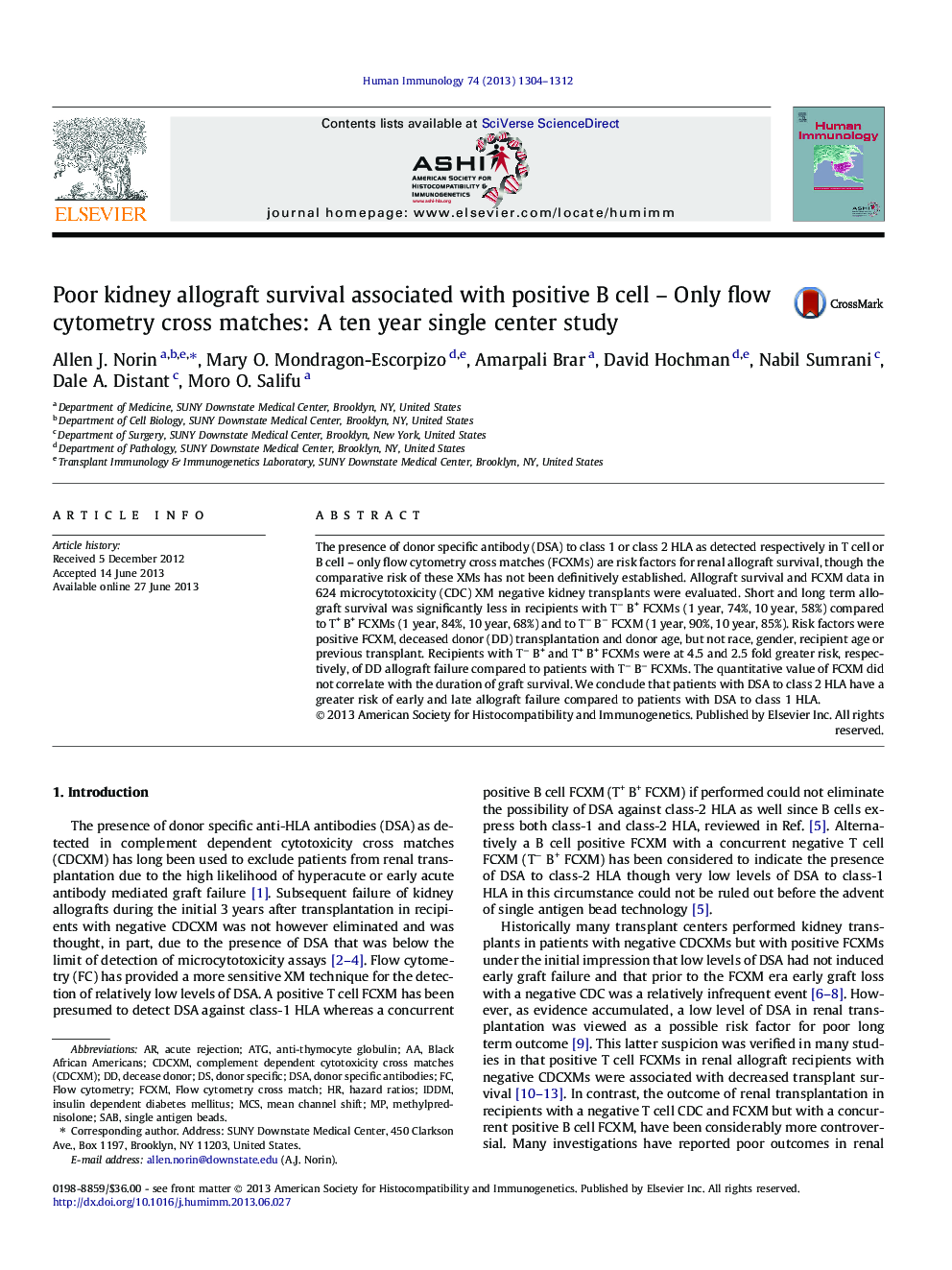| Article ID | Journal | Published Year | Pages | File Type |
|---|---|---|---|---|
| 6116787 | Human Immunology | 2013 | 9 Pages |
Abstract
The presence of donor specific antibody (DSA) to class 1 or class 2 HLA as detected respectively in T cell or B cell - only flow cytometry cross matches (FCXMs) are risk factors for renal allograft survival, though the comparative risk of these XMs has not been definitively established. Allograft survival and FCXM data in 624 microcytotoxicity (CDC) XM negative kidney transplants were evaluated. Short and long term allograft survival was significantly less in recipients with Tâ B+ FCXMs (1Â year, 74%, 10Â year, 58%) compared to T+ B+ FCXMs (1Â year, 84%, 10Â year, 68%) and to Tâ Bâ FCXM (1Â year, 90%, 10Â year, 85%). Risk factors were positive FCXM, deceased donor (DD) transplantation and donor age, but not race, gender, recipient age or previous transplant. Recipients with Tâ B+ and T+ B+ FCXMs were at 4.5 and 2.5 fold greater risk, respectively, of DD allograft failure compared to patients with Tâ Bâ FCXMs. The quantitative value of FCXM did not correlate with the duration of graft survival. We conclude that patients with DSA to class 2 HLA have a greater risk of early and late allograft failure compared to patients with DSA to class 1 HLA.
Keywords
Related Topics
Life Sciences
Immunology and Microbiology
Immunology
Authors
Allen J. Norin, Mary O. Mondragon-Escorpizo, Amarpali Brar, David Hochman, Nabil Sumrani, Dale A. Distant, Moro O. Salifu,
